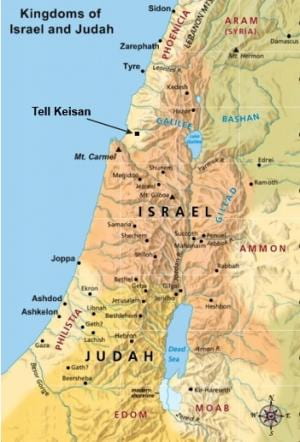
Tell Keisan (Tel Kison) is a prominent flat-topped ruin mound located 15 kilometers (9 miles) northeast of the modern city of Haifa. Buried in this mound are the remains of a long series of ancient settlements that were built, destroyed, and rebuilt, one on top of another, over more than two millennia. During the Iron Age, in the period of the biblical kings of Israel, Tell Keisan and the surrounding coastal region of the Akko Plain were part of a Phoenician kingdom (Tyre, or perhaps Sidon) that engaged in far-flung trade as far west as Spain and had close economic, political, and cultural ties to the neighboring Israelites.
Tell Keisan was first excavated briefly in the 1930s and then for several years in the 1970s by the École biblique et archéologique française in Jerusalem. The current excavations began in 2016 and are co-directed by Prof. David Schloen of the University of Chicago, Prof. Gunnar Lehmann of Ben-Gurion University of the Negev, and Prof. Bernd Schipper of the Humboldt University of Berlin. An international team of archaeologists and students worked at Tell Keisan in 2016, 2018, 2019, 2022, and 2023.